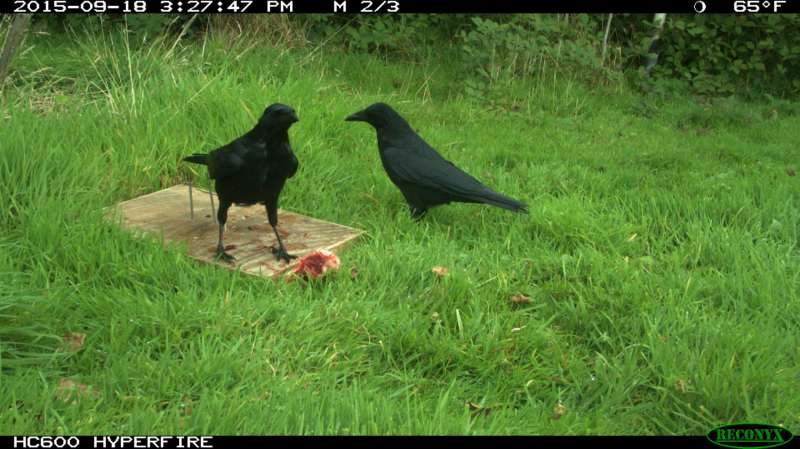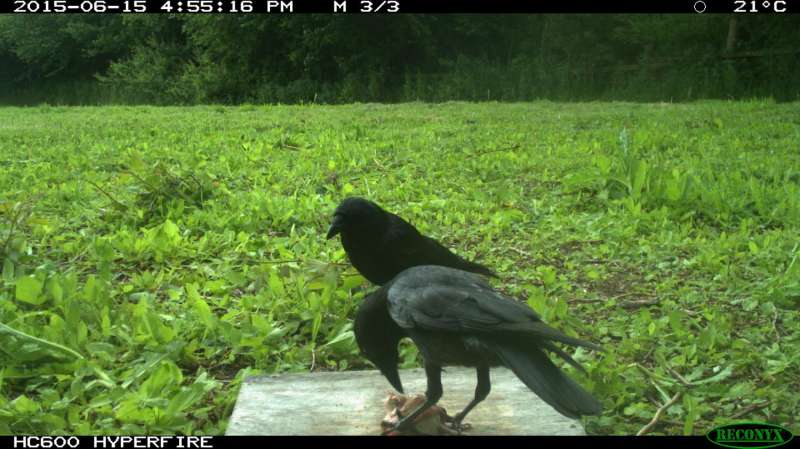Scavenger crows provide public service, research shows

Crows are performing a useful function and keeping our environment free from rotting carcasses, research carried out at the University of Exeter in Cornwall has discovered.
Using motion activated cameras in and around Falmouth and the University's Penryn Campus, Cornwall, ecologists observed what happened to experimental rat carcasses which they placed under view.
The researchers found that most of the carcass removal ecosystem service - which has been well studied in more natural and exotic habitats, such as vultures in Africa - is being carried out by crows, with a little help from foxes, magpies, badgers and herring gulls.
Dr Richard Inger, a researcher attached to the Environmental and Sustainability Institute at Penryn Campus, said: "If you consider all the wildlife that lives in the habitats in our towns and countryside, it might seem odd that we rarely see dead animals, apart from roadkill. This is because other animals act as scavengers and eat them.
"It's a bit grizzly but crows and other scavengers, which are often perceived as pests and generally fairly unloved species, are performing a very valuable service. Without these scavengers dead animals would be scattered around our environment rotting and causing a hygiene hazard."

The researchers observed and filmed 17 vertebrate species eating rat carcasses which they placed at 12 study sites between May and September 2015. Seven species including the Carrion Crow, the Common Buzzard, European Magpie, Herring Gull, Fox and Badger were recorded eating the carcasses, with 98 per cent of the activity carried out by the Crows.
Dr Inger highlighted the importance of the scavenger role and added: "We know what can happen when natural scavengers are removed as this was the case with the vulture populations of India, which plummeted massively in the 1990s. Vultures were fatally poisoned by a veterinary drug given to cattle, meaning that carcasses were not eaten by vultures but instead by feral dogs, which grew in numbers and caused a huge increase in cases of rabies."
Professor Kevin J.Gaston, Director of the Environment and Sustainability Institute, and co-author on the paper, said: "It is vital that we understand the different ecological functions and services that organisms provide, if we are to value and manage them most appropriately. Sometimes, as in this case, it will be individual species that are especially important. In others it will be the diversity of species. In both cases, the level of function and service depends on having sufficient individuals thriving in the landscape."
More information: Richard Inger et al, Key role in ecosystem functioning of scavengers reliant on a single common species, Scientific Reports (2016). DOI: 10.1038/srep29641
Journal information: Scientific Reports
Provided by University of Exeter



















